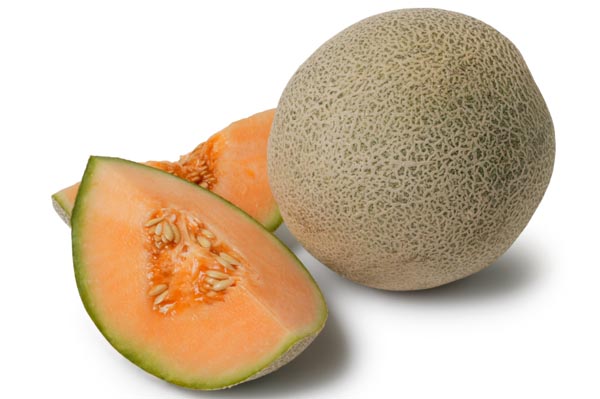The legal fallout from one of the most deadly outbreaks of foodborne illness in decades has settled, according to an attorney involved in the litigation.
 The Washington Post reports lawsuits involving more than 20 defendants in the outbreak of listeria in cantaloupe that killed 33 people and sickened 147 in 2011 wrapped up last week with a settlement among some of the main participants, said William Marler, a Seattle attorney whose firm represented 50 of the victims.
The Washington Post reports lawsuits involving more than 20 defendants in the outbreak of listeria in cantaloupe that killed 33 people and sickened 147 in 2011 wrapped up last week with a settlement among some of the main participants, said William Marler, a Seattle attorney whose firm represented 50 of the victims.
Terms of the latest settlement — which included the Kroger grocery chain, a large broker and an auditor — are confidential, he said. Wal-Mart, which sold melons to some of the people who fell ill, had previously settled.
The Food and Drug Administration traced the outbreak to unsanitary conditions at a Colorado farm packing facility where the cantaloupes were washed, boxed and shipped out. The owners of Jensen Farms went bankrupt and pleaded guilty to six misdemeanors in the case.
Attorney Jeff Whittington, representing third-party auditor Primus, confirmed to the Packer the litigation against the company was dismissed.
Will Steele, president of Frontera, Edinberg, Texas, said the company is “focused on strengthening the industry’s traceability efforts.”
“The matter is in the process of being resolved,” Steele said. “Settlement documents have been exchanged with the plaintiffs, and the parties anticipate that those documents will be signed by all the required parties. However, the settlement isn’t officially concluded until that occurs. We believe a final settlement of all claims will be reached soon.”
At least 147 people became sick and at least 33 died because of listeria infections after eating cantaloupe from Jensens Farms, according to the Centers for Disease Control and Prevention. The CDC estimates at least 10 other people who had the outbreak strains of listeria had eaten the Jensen cantaloupe, but health officials had not confirmed the link when filing out death certificates.
The victims, their families, Frontera Produce, the Kroger Co. and its subsidiaries, and cantaloupe growers Eric and Ryan Jensen all contended in various court cases that Primus Group Inc., doing business as PrimusLabs, should have been held partly responsible.
 They contended the Jensens would not have been able to sell their cantaloupe if their operation had not received high marks for food safety during an audit just before harvest began in 2011.
They contended the Jensens would not have been able to sell their cantaloupe if their operation had not received high marks for food safety during an audit just before harvest began in 2011.
The settlement with Kroger and Frontera will also result in dismissal of cases those two companies and the Jensen brothers had filed against Primus and Bio Food Safety, which is the third-party auditing company hired by Primus to conduct the 2011 audit of the Jensens’ operation.
Bio Food Safety auditor James DiIorio gave the operation a “superior” rating of 96%. Primus contended in various court documents that it was not hired to do any microbial testing and that the Jensens’ cantaloupe would have been sold and eaten regardless of the audit score.

.jpg) inspections of farms and with only voluntary guidelines of how fresh produce can be kept safe.”
inspections of farms and with only voluntary guidelines of how fresh produce can be kept safe.”.jpg) improved food safety a great deal. Critics are too ready to dismiss the whole system."
improved food safety a great deal. Critics are too ready to dismiss the whole system.".jpg) changes," Mulhern said in an email. Frontera is looking into whether more steps are needed to validate findings, such as follow-up audits, he said.
changes," Mulhern said in an email. Frontera is looking into whether more steps are needed to validate findings, such as follow-up audits, he said..jpg) spread via cantaloupe grown by Jensen Farms in Colorado.
spread via cantaloupe grown by Jensen Farms in Colorado.  But there’s not much consumers can do. If the listeria is on the rind, when you cut it open "it’s going to cross-contaminate."
But there’s not much consumers can do. If the listeria is on the rind, when you cut it open "it’s going to cross-contaminate." program. Growers and packers that want to sell him melons will need to test them for a broad range of potential pathogens such as "E. coli, salmonella, listeria," and not ship to him until the results come back negative, a process that takes between eight and 48 hours.
program. Growers and packers that want to sell him melons will need to test them for a broad range of potential pathogens such as "E. coli, salmonella, listeria," and not ship to him until the results come back negative, a process that takes between eight and 48 hours. California (1), Colorado (14), Illinois (1), Indiana (1), Maryland (1), Montana (1), Nebraska (4), New Mexico (10), Oklahoma (8), Texas (9), Virginia (1), West Virginia (1), Wisconsin (2), and Wyoming (1).
California (1), Colorado (14), Illinois (1), Indiana (1), Maryland (1), Montana (1), Nebraska (4), New Mexico (10), Oklahoma (8), Texas (9), Virginia (1), West Virginia (1), Wisconsin (2), and Wyoming (1)..jpg)